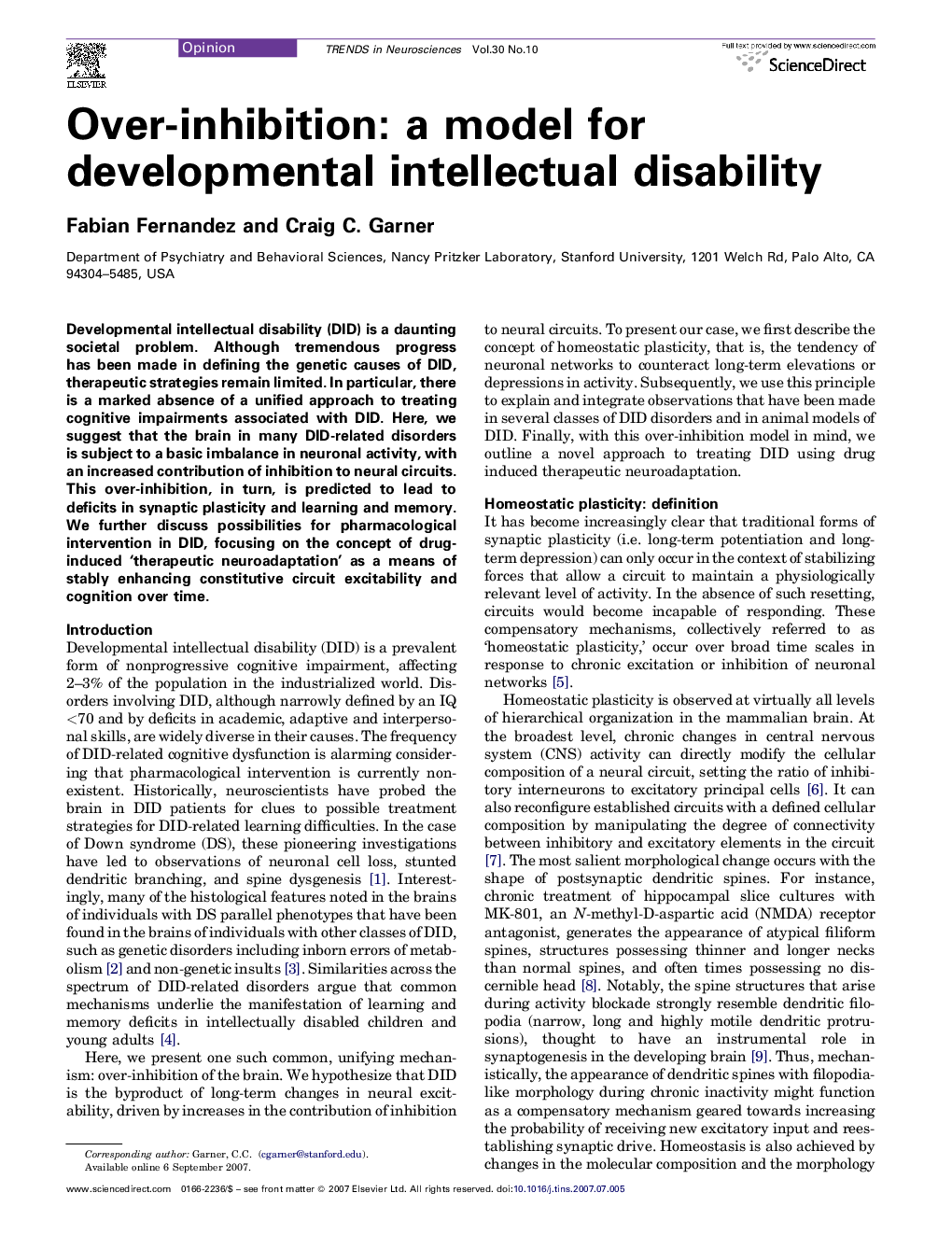| Article ID | Journal | Published Year | Pages | File Type |
|---|---|---|---|---|
| 4354945 | Trends in Neurosciences | 2007 | 7 Pages |
Developmental intellectual disability (DID) is a daunting societal problem. Although tremendous progress has been made in defining the genetic causes of DID, therapeutic strategies remain limited. In particular, there is a marked absence of a unified approach to treating cognitive impairments associated with DID. Here, we suggest that the brain in many DID-related disorders is subject to a basic imbalance in neuronal activity, with an increased contribution of inhibition to neural circuits. This over-inhibition, in turn, is predicted to lead to deficits in synaptic plasticity and learning and memory. We further discuss possibilities for pharmacological intervention in DID, focusing on the concept of drug-induced ‘therapeutic neuroadaptation’ as a means of stably enhancing constitutive circuit excitability and cognition over time.
